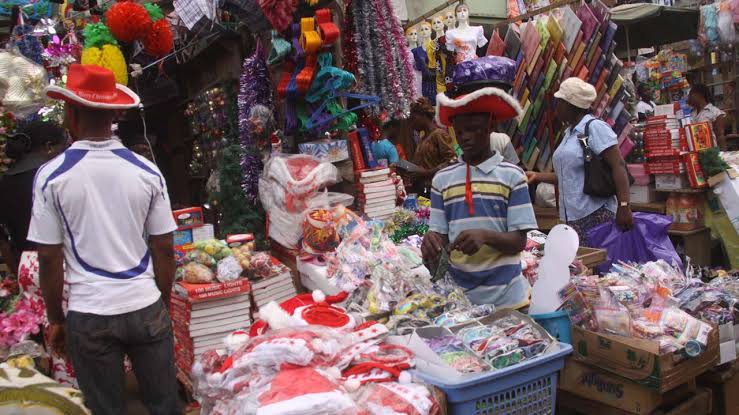The festive spirit of Christmas in Nigeria is increasingly overshadowed by the grim reality of soaring inflation, casting a pall over what is traditionally a time of joy and celebration. The economic hardships faced by many Nigerians mean that the cost of observing the holiday has become almost prohibitive, forcing families to make difficult choices and forgo long-held traditions. The once-abundant Christmas table, laden with festive foods, is now a luxury for many, replaced by simpler, more affordable meals. The rising cost of basic food items, coupled with increased transportation costs, has significantly altered the way Nigerians experience Christmas, leaving many struggling to maintain even a semblance of the traditional festivities.
The impact of inflation is evident in every aspect of the Christmas celebration. The prices of staple foods, such as rice, chicken, and cooking oil, have more than doubled in recent years, making the traditional Christmas feast a distant dream for many families. The cost of purchasing livestock, such as cows, goats, and chickens, which are central to many Christmas celebrations, has also skyrocketed. A bag of rice, which previously cost under N10,000, now sells for over N100,000, a stark illustration of the dramatic price increases. Similarly, the price of frozen chicken, a popular festive protein, has seen a staggering increase of 107%. These inflated prices mean that families are forced to drastically reduce their spending, often sacrificing cherished traditions and opting for more economical alternatives.
The ripple effects of inflation extend beyond the Christmas dinner table. The rising cost of transportation has made it difficult, if not impossible, for many Nigerians to travel to their hometowns for family reunions, a cornerstone of the Christmas celebration. These missed reunions add an emotional burden to the already significant financial strain. Parents are increasingly unable to purchase new clothes and shoes for their children, a customary part of the holiday season. The joy of giving and receiving gifts, especially for children eagerly awaiting “Father Christmas,” is also diminished as families struggle to afford even the most basic necessities.
Despite the bleak economic outlook, the resilient spirit of Nigerians shines through. Faced with unprecedented financial challenges, many are finding creative ways to celebrate Christmas on a budget. Homemade decorations and gifts are becoming increasingly popular, replacing store-bought items. Potluck dinners, where families share the cost of the meal, are replacing lavish feasts. The focus is shifting from material possessions to shared experiences, with families prioritizing quality time together, watching Christmas films, or enjoying simple outings. This resourcefulness demonstrates the enduring importance of Christmas as a time for family and togetherness, even amidst economic hardship.
However, even these resourceful adaptations are challenged by the unrelenting rise in the cost of essential goods and services. The official statistics paint a stark picture of the economic reality. Nigeria’s headline inflation rate for November 2024 reached 34.60%, with food inflation even higher at 39.93%. These figures translate into tangible hardships for ordinary Nigerians. A cow, a centerpiece of many Christmas celebrations, now costs between N1 million and N1.5 million in Lagos markets. A 25kg keg of groundnut oil, essential for cooking, costs between N95,000 and N100,000. These exorbitant prices mean that even the most basic Christmas meal is becoming unaffordable for many families.
The voices of ordinary Nigerians reflect the widespread anxiety and frustration caused by the rising cost of living. Wonuade Anota, a Lagos banker, lamented the dramatic increase in food prices, pointing out the sharp contrast between the relatively stable prices during the Buhari administration and the current skyrocketing costs. Mrs. Adaora, a civil servant, highlighted the discrepancy between the promised N80,000 minimum wage and the reality of stagnant salaries, forcing families to celebrate Christmas on a drastically reduced budget. Madam Blessing, a trader, captured the prevailing sentiment, describing the season as bittersweet, a time of joy tinged with anxiety as families struggle to make ends meet. These personal accounts underscore the pervasive impact of inflation on the lives of Nigerians, transforming what should be a joyous occasion into a period of financial strain and uncertainty.














